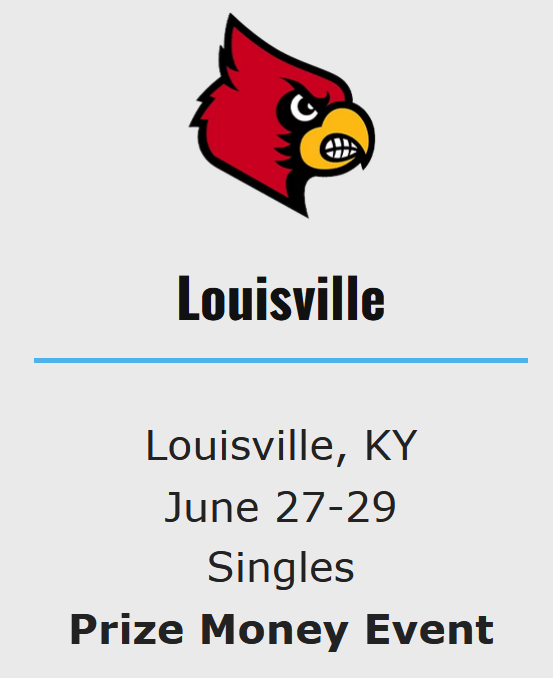Tournament Realizations: Chasing Greatness

I did not decide to hang up the "sticks" after graduating college. I could have gone about my life as though I never played and started a career - the regular choice - but after not choosing that path and being a tennis coach, I could have easily stopped playing competitively. This would make sense; spending my time earning money instead of paying to enter a tournament seems like the logical choice. I made the illogical decision to seek glory this past weekend.
Practice vs. Showtime
I hadn't played a tennis match with anything on the line in well over a year. The matches I had played were more akin to practice sets and coaching sessions than playing with intensity to win. If you have played organized sports before, I'm sure you understand what I mean. Practice is not the same as competing.
For me, practice was historically my time to loosen up, work on my strokes, and focus on executing my game plan. When it came time to compete, my body tightened, and I shifted my strategy to winning at all costs. Nerves? Yes. But I allowed my nerves to control my game. When I stepped onto the court, I knew one thing: I was going to try to put more balls in play than my opponent. My game style has always been to grind and counterpunch - I like to wait for and capitalize on openings instead of creating them myself. In the past six months, however, I have worked on shifting my game to hit more pace and work on finishing points early. I used to strive for unwavering consistency, and while I don't think that is a wrong or bad aspiration, I now believe in ball-striking.
My Weekend Goal
This has been a tough change and one that I previously considered a non-option. Stuck just under five feet and eight inches, my build does not resemble a power player's - or so I thought. A coworker and fellow instructor of mine spoke with me about his philosophy on hitting a tennis ball. I tried some of his ideas and liked the results. I saw more power, spin, and ability to handle incoming pace. I started incorporating his advice into my lessons and continued to practice it myself. Don't get me wrong, my number one goal as a tennis coach is to help my students reach their full potential. So why did I go and play a tournament?
I view it as professional development. Would you trust someone marketing a ballpoint pen if they're signing contracts with a fountain? Maybe you would, but wouldn't it make more sense if they're using the product they're selling? I don't want to sell a product I don't believe in, so I put my proverbial boots on the ground to test my new doctrines.
Match play
The tournament I entered was a small ITA-sponsored money tournament at the University of Louisville. First place also earned a wildcard into an ITF Futures event. With a little money and a huge opportunity on the line, I knew I'd play against great competition. My assumption was correct, and both matches I played were against people ranked higher than myself.
Armed with some cold water, plenty of wristbands, and three racquets, I started my first match in 95-degree heat without a cloud in sight. Two hours and liters of fluids later, I lost my first round after getting broken at 4-5 down in both sets. I don't want to get into the details - my goal with writing isn't to make excuses. I was pleased with the new strategy and goals for hitting the ball, but my performance still had worrisome symptoms.
The first issue I couldn't get over was my reluctance to continue striking the ball. After more unforced errors than usual - which I was honestly prepared for since I was trying to dictate points - I reverted to playing safe and hoping my opponent would make a mistake.
The second and more concerning issue was my mentality on court. Multiple times, I asked why I was playing the match. I was exhausted, hot, sunburnt, and - worst of all - losing. I've always said the worst feeling you can have on court isn't anger, disappointment, or sadness. It's self-pity. I didn't feel that way once during my four years of college. So why now?
Playing with Purpose
The answer was clear to me once I finished the tournament. In college, I always played for something bigger than myself. That may sound cliché, but it's my truth. My team meant the world to me, and it provided my drive to compete. I wasn't able to give up and let my team down.
While I had prepared to make unforced errors, steeled myself to the possibility of losing, and expected the heat to be miserable, I failed to produce a competitive drive. Everyone needs a reason to win; without it, we can't reach our full potential.
I thought that entering a tournament would give me the chance to try my new strategy and determine if it's worth teaching. It did, but it also taught me that playing matches without conviction results in an entirely different headspace. If I, or anyone for that matter, want to compete at the highest level, I need to find my reason to win. We need motivation to achieve greatness.
